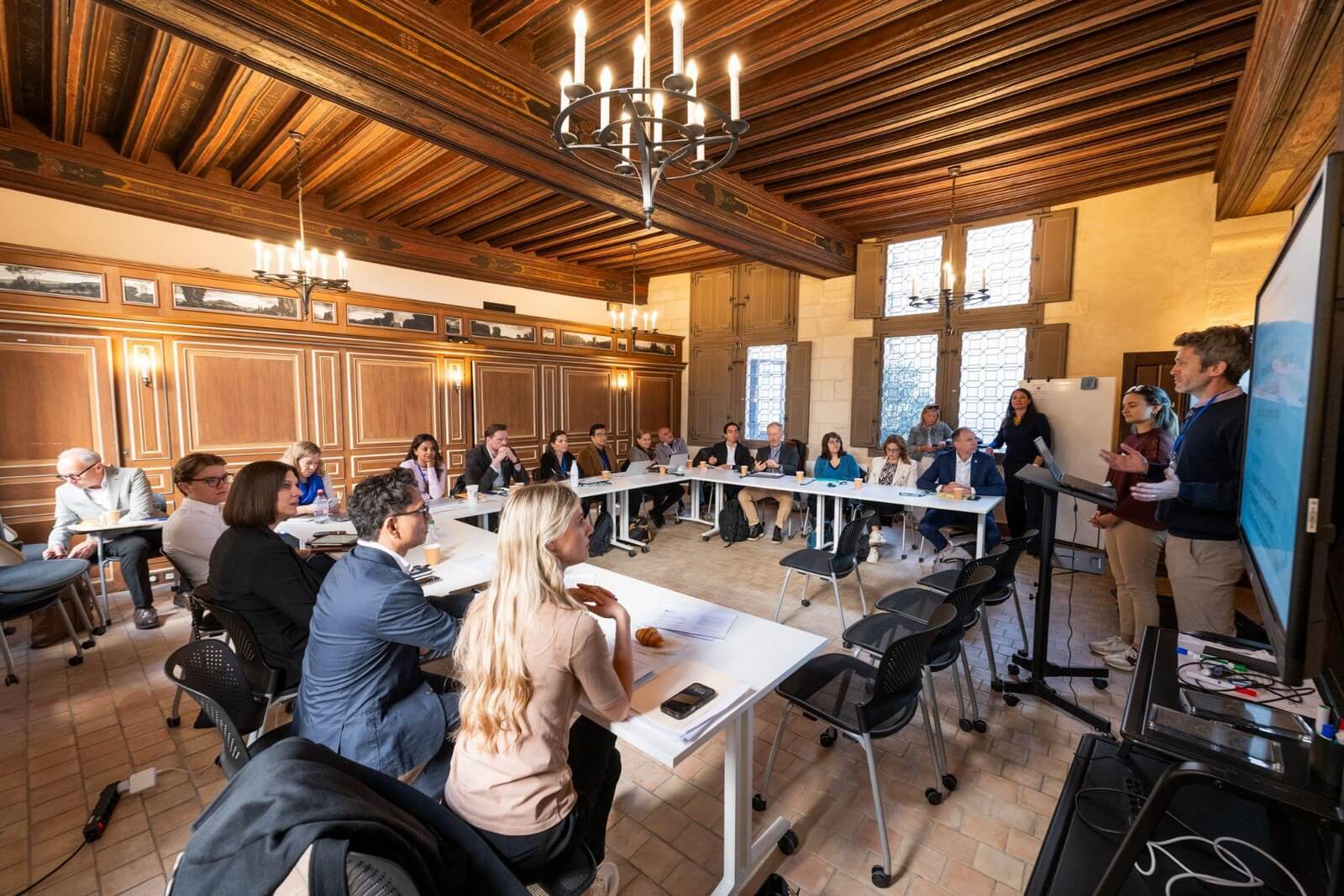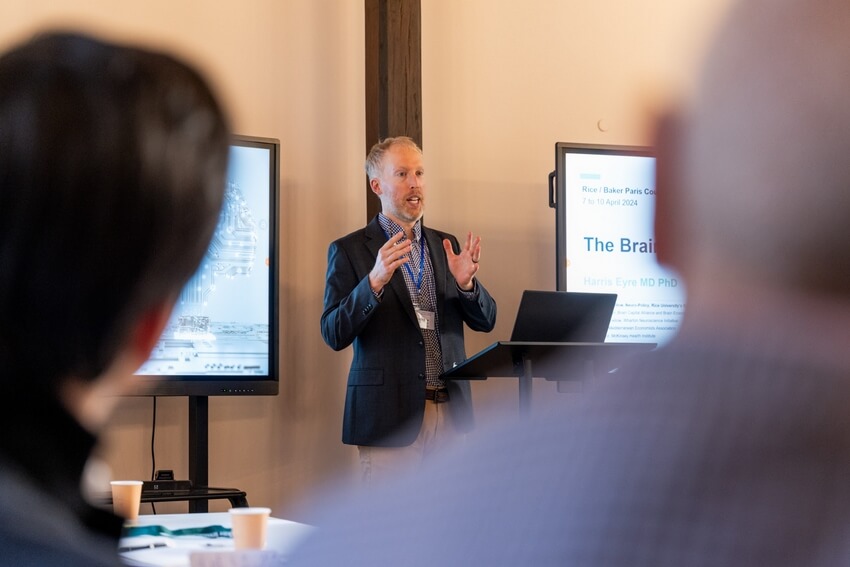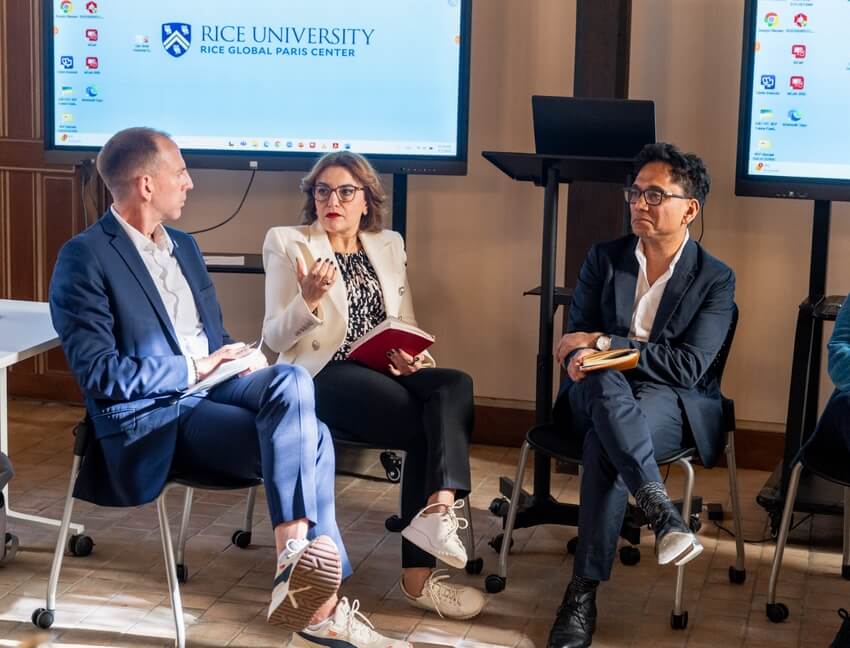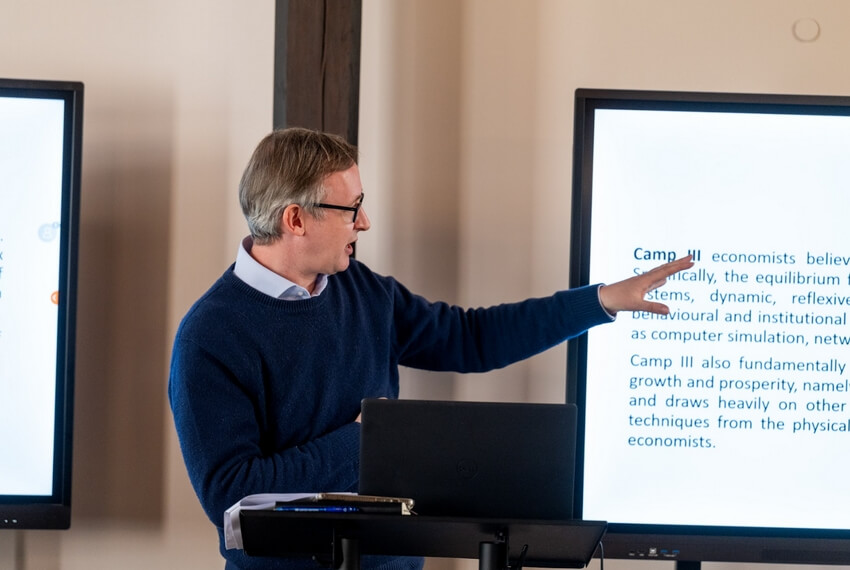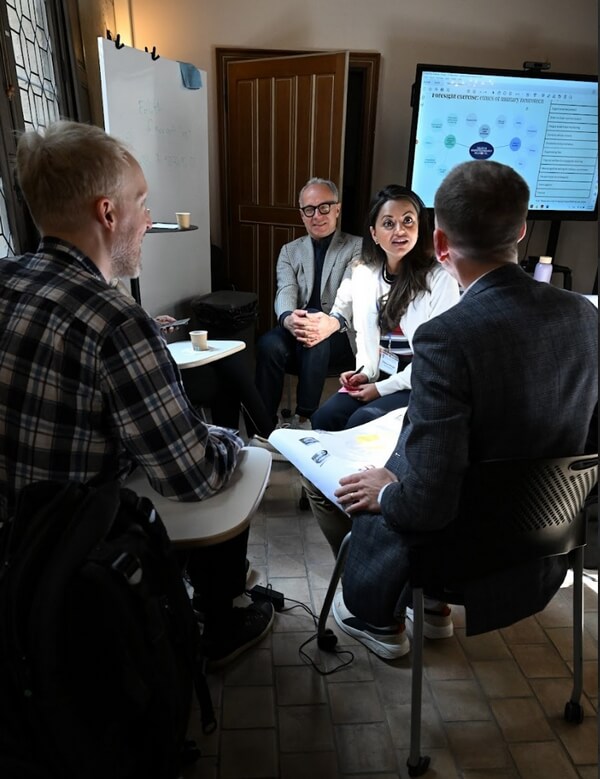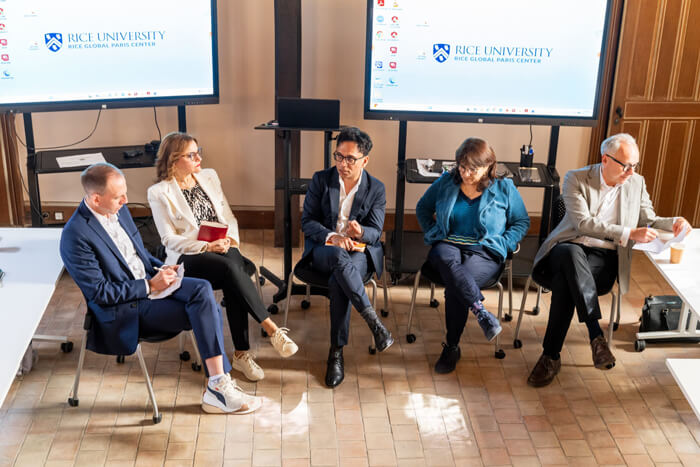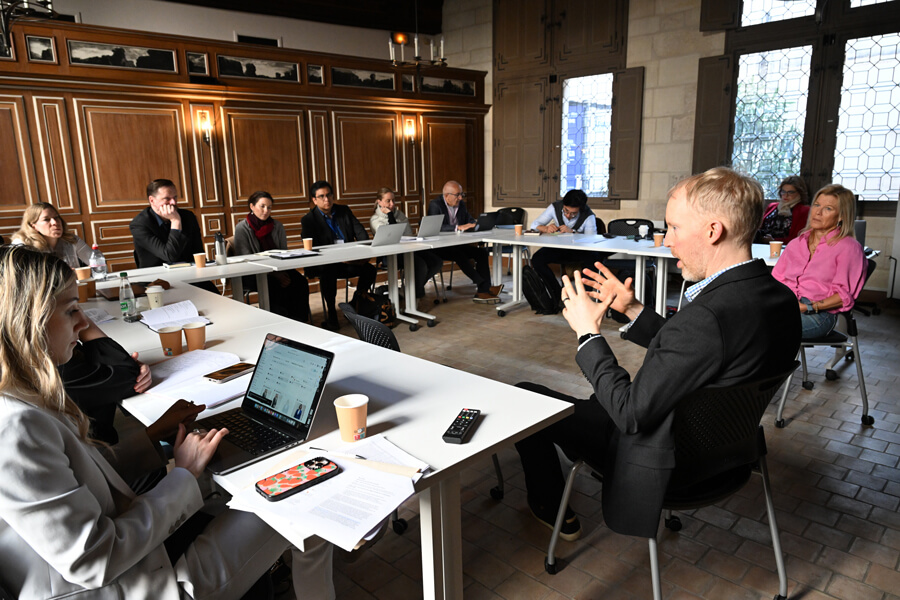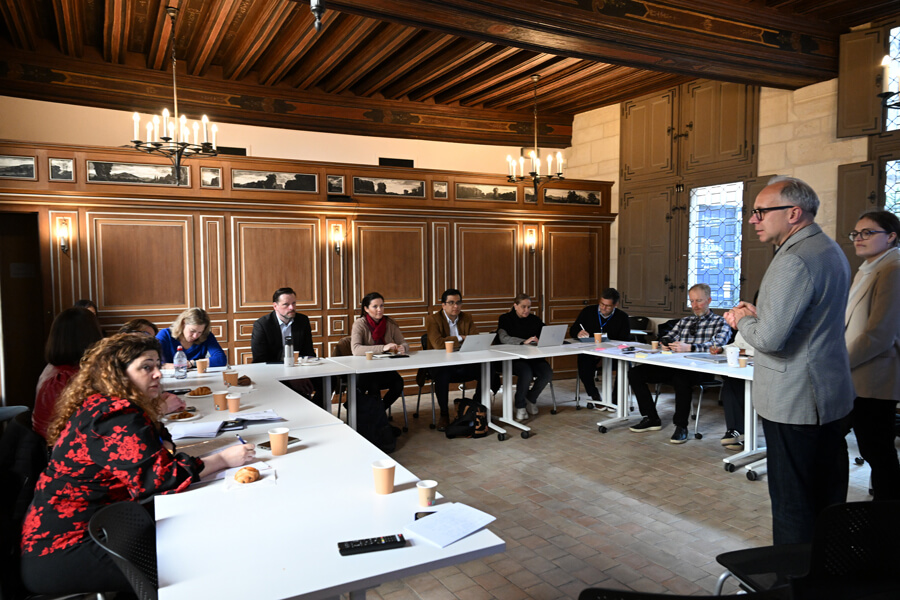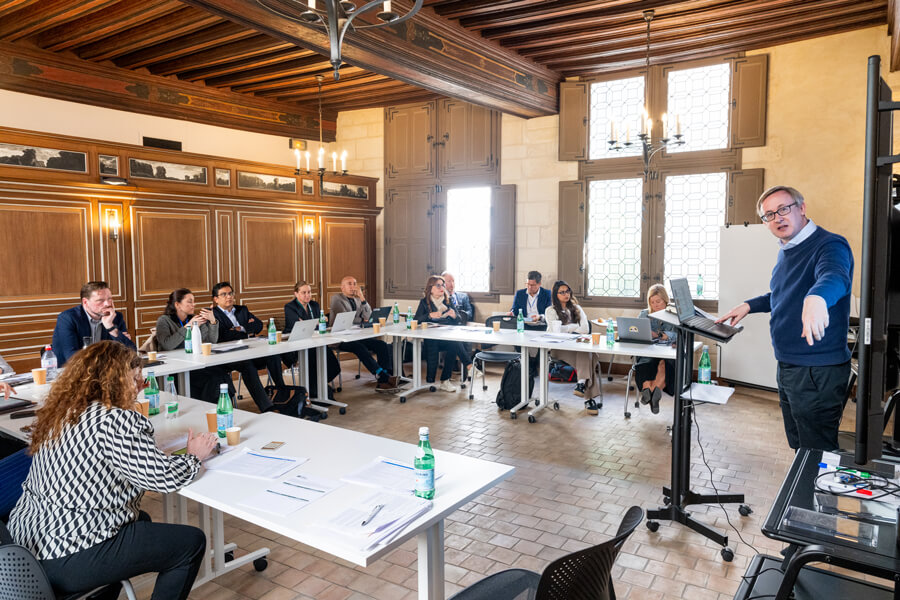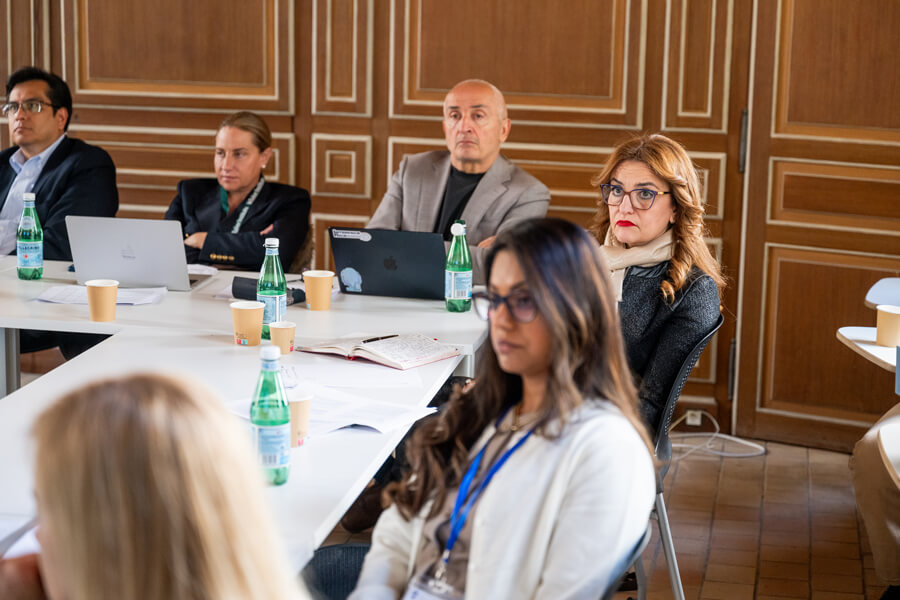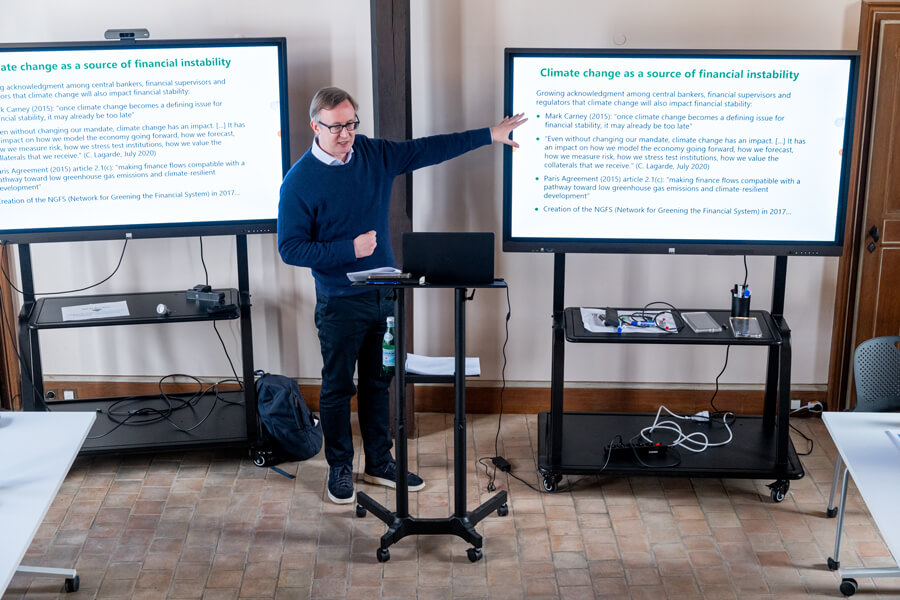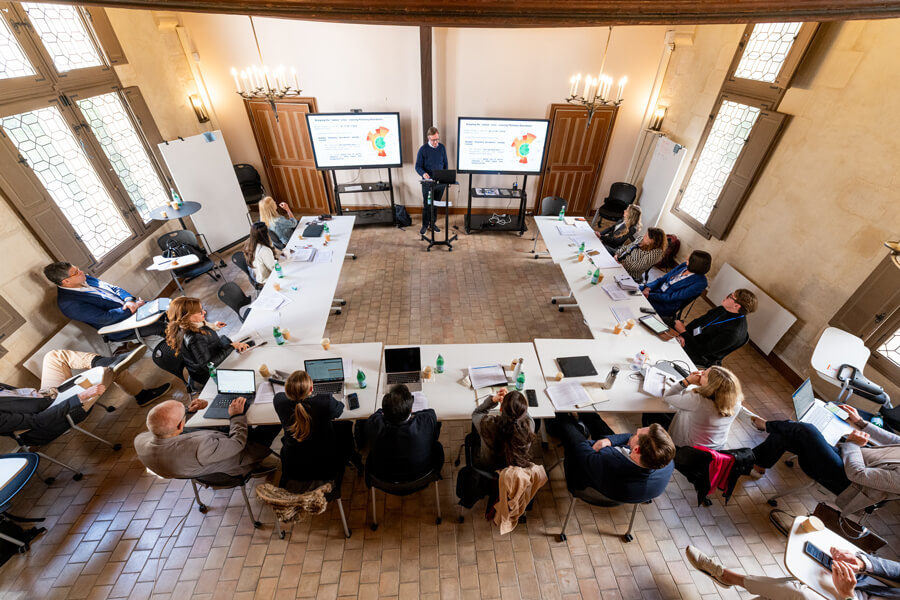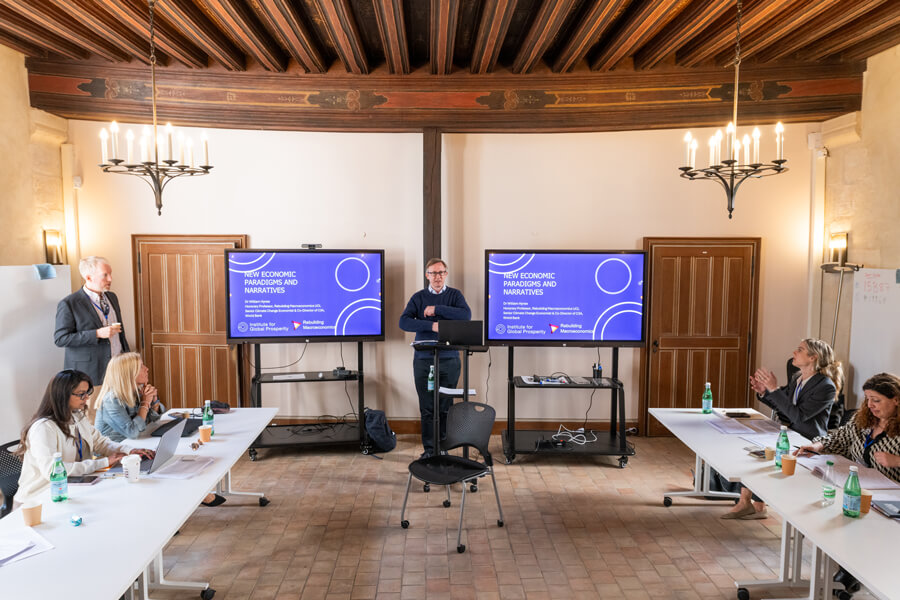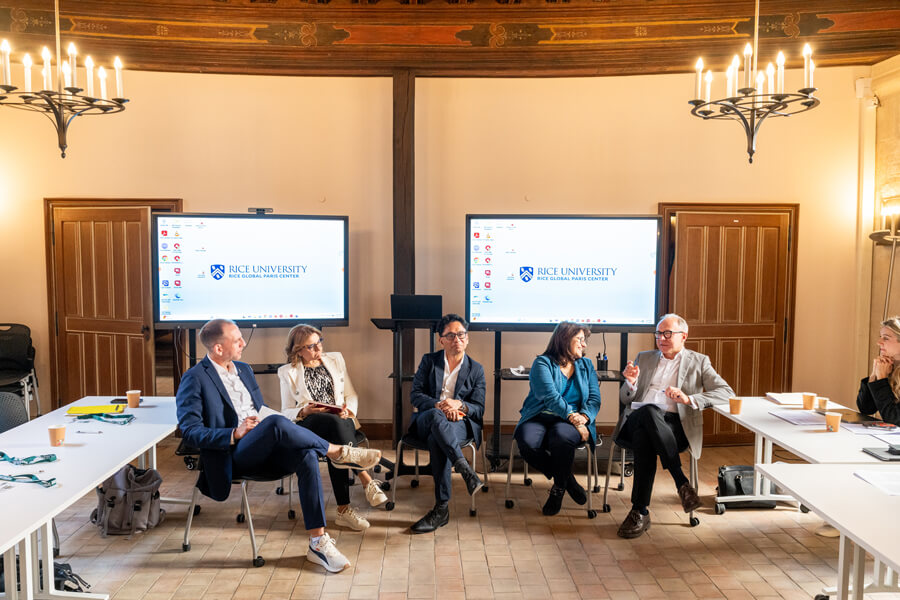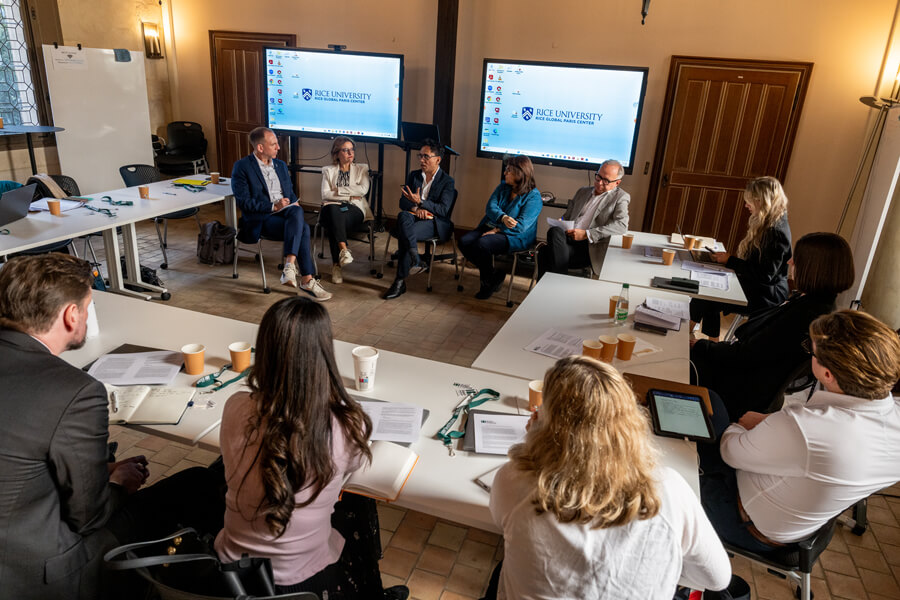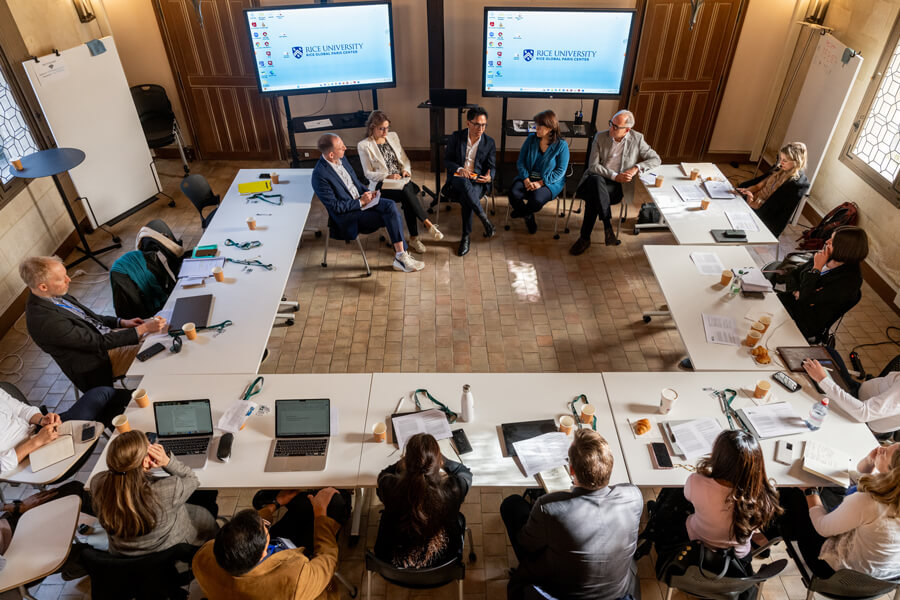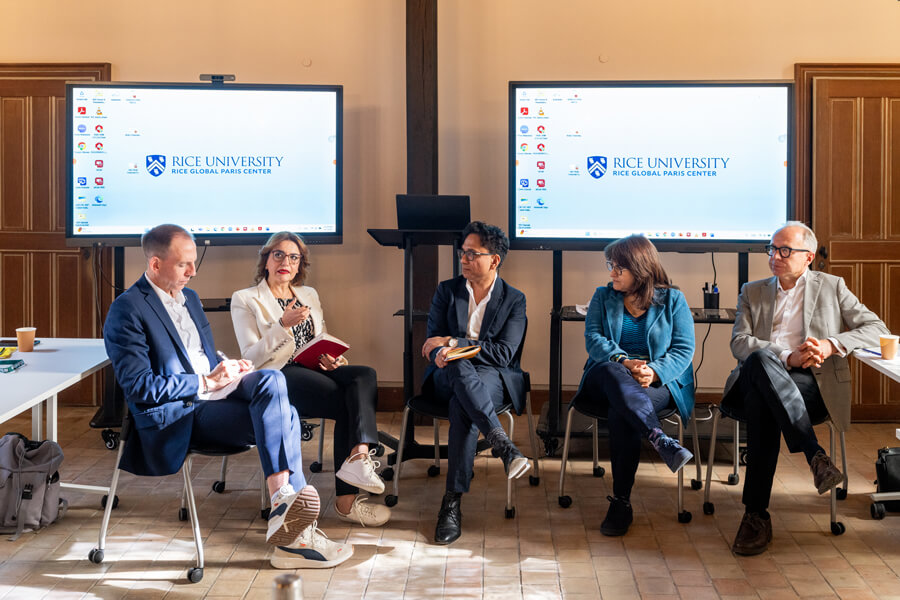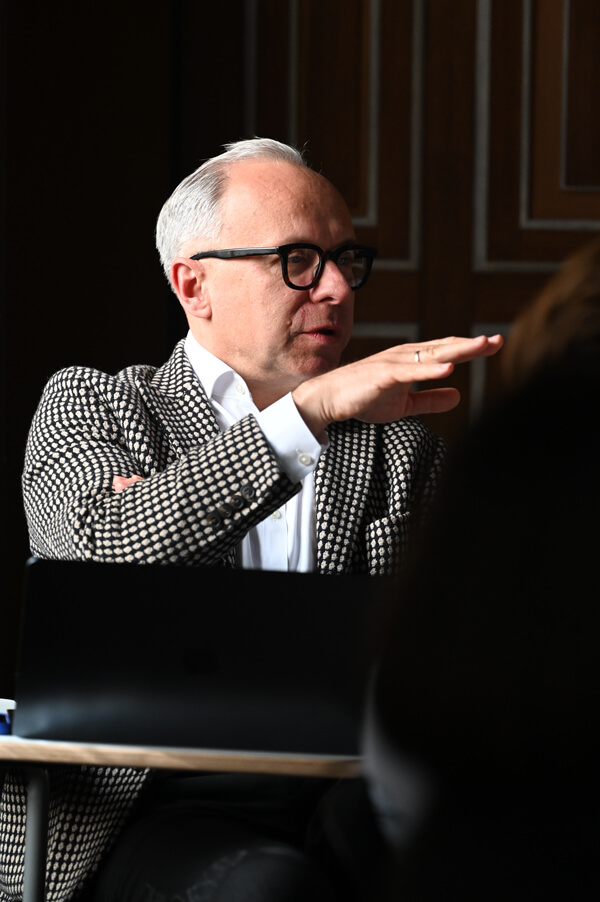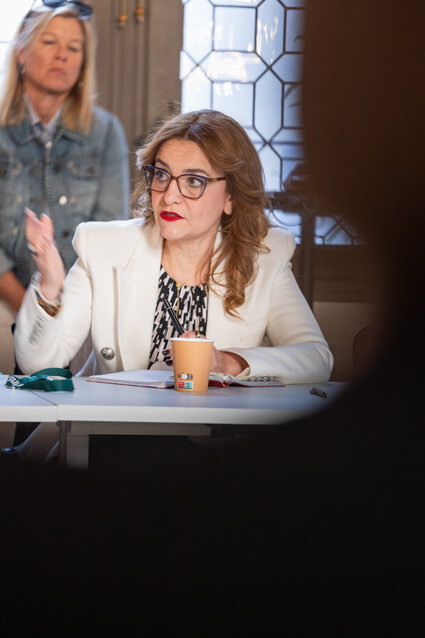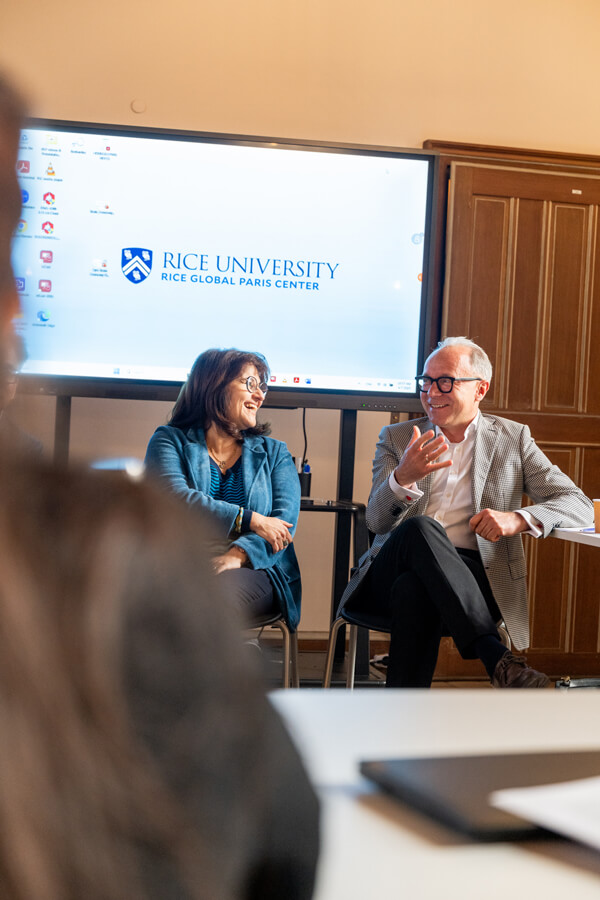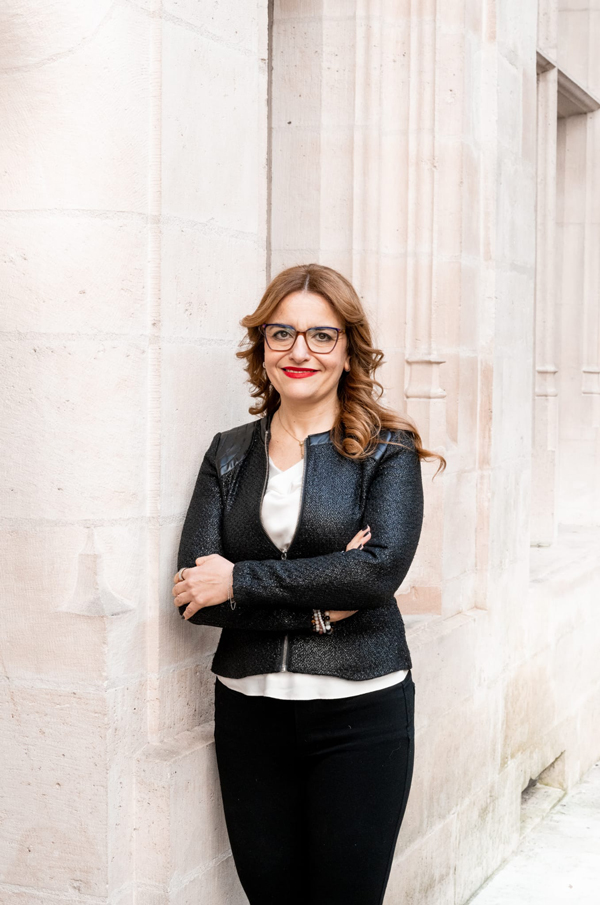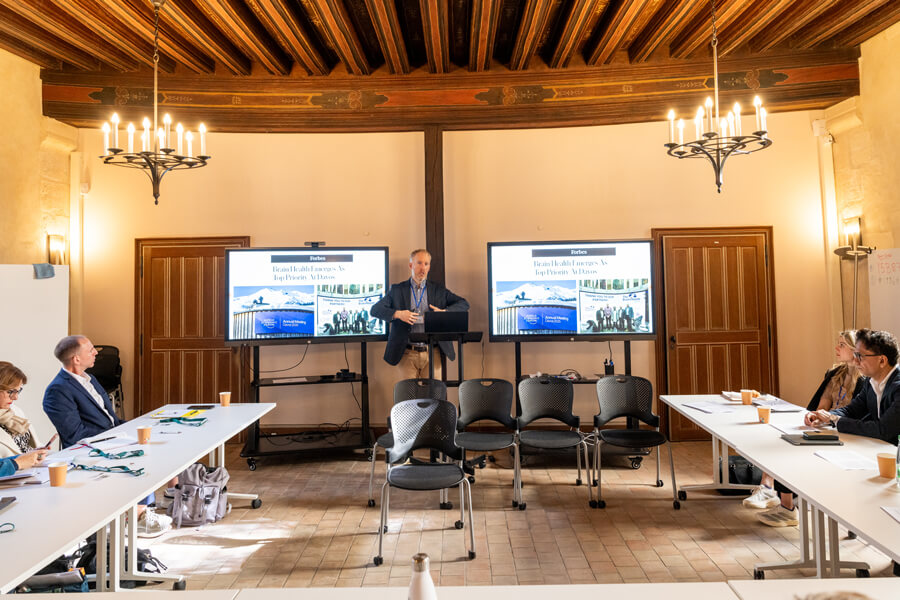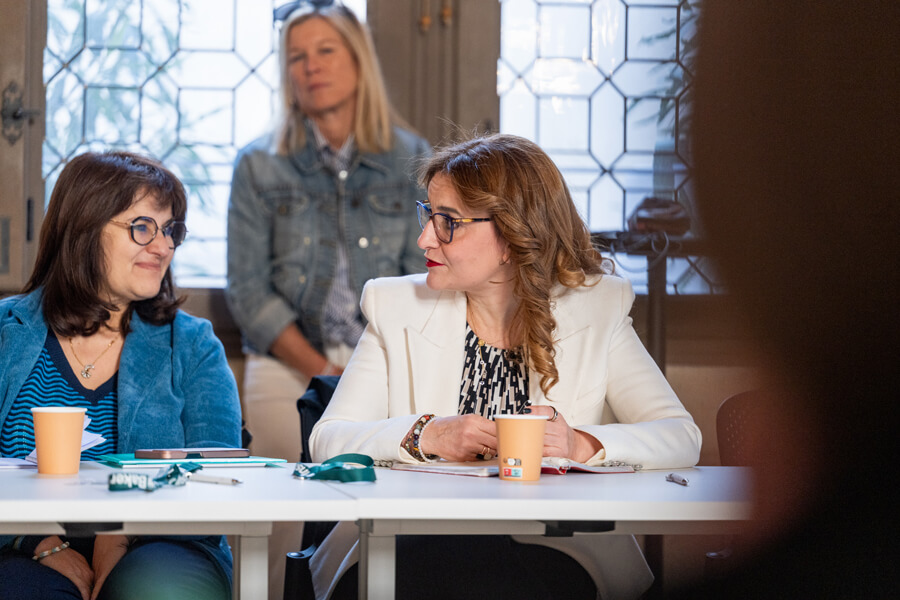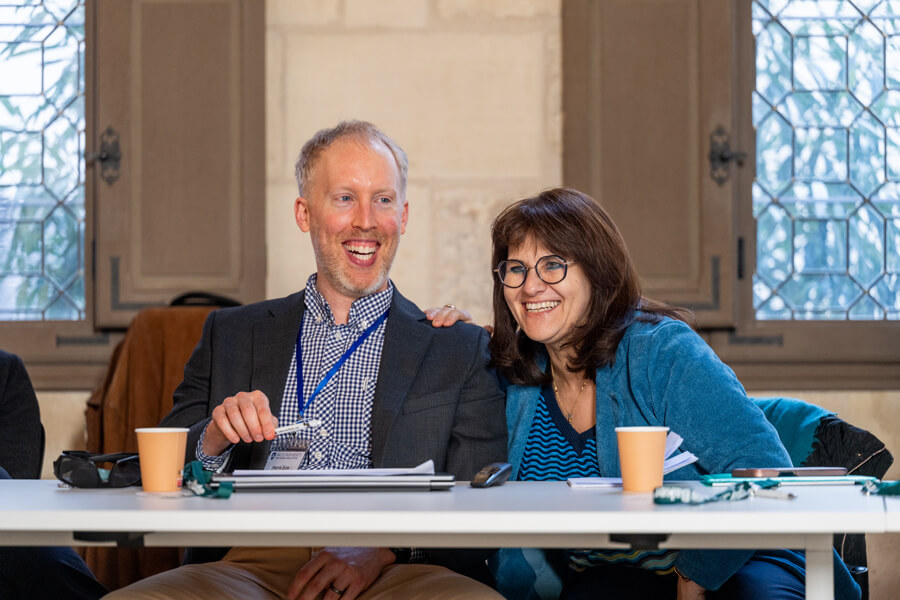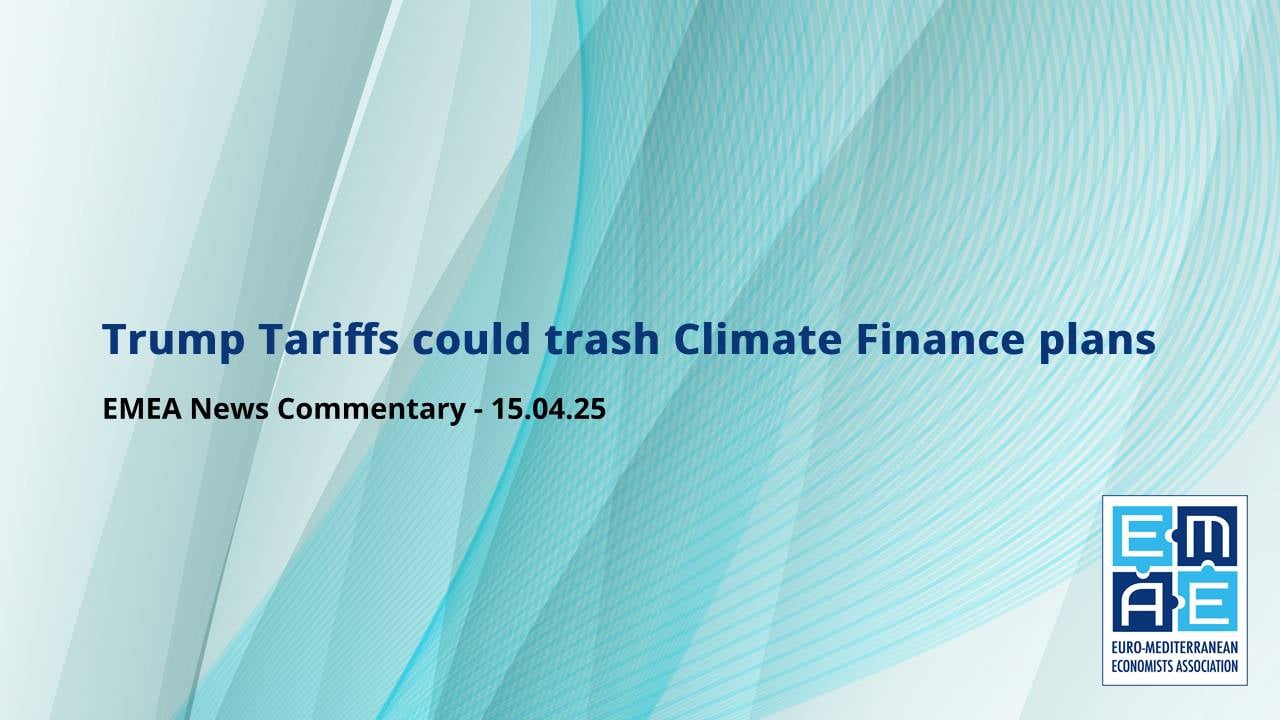Paris, France – Rice University Global and the Rice University Baker Institute for Public Policy successfully completed this unique course focused on the brain economy, a new economic paradigm that prioritizes brain capital as its core asset. Driven by a neuroscience renaissance, it responds to the growing demand for brain skills—cognitive, emotional, and social—in the modern workforce.
Executives were present from global institutions spanning private multi-national corporations, to universities, health systems, and think tanks.
Faculty included senior experts from the McKinsey and Company, the European Investment Bank, Ramsay Health Care, the Edison Electric Institute, UCL, Santa Fe Institute, The World Bank, UsAgainstAlzheimer’s, the European Brain Council, the Centre for Future Generations, the European Policy Centre, the Brain Capital Alliance, and the Euro-Mediterranean Economists Association.
Harris Eyre, the faculty lead for the course noted, “Prioritizing brain health and fostering brain capital has the potential to unlock $26 trillion in global economic opportunities by enhancing workforce performance, igniting innovation, and reclaiming millions of years of quality life.” Eyre is Lead and Senior Fellow for Neuro-Policy at the Baker Institute and Executive Director of the Brain Capital Alliance.
This course had two primary objectives: equipping executives with a brain economy playbook, as well as a customized action plan for executive organizations.
The brain economy playbook encompasses core thematic learning areas crucial to human brains now and in the coming decade. These included brain-machine interfaces, AI, impact investing, neurotechnology ethics, new economic thinking, regional living labs, the role of politics, and policy communication.
Rym Ayadi, a member of the faculty for the course and Founder and President of the Euro-Mediterranean Economists Association (EMEA), noted “The brain economy invites us to stop seeing brain health as a cost—and start recognizing it as the most vital investment in our collective future.” Ayadi also encouraged the executives to leverage the Brain Capital Dashboard in their action plans. Ayadi is a co-founder of the Brain Capital Alliance.
From his side Dr Willian Hynes, Senior Economist at the World Bank; Adjunct Professor at University College London and Santa Fe Institute noted in his keynote presentation: “The pioneering work on the brain economy helps scientists, economists, private sector actors and policymakers think about the biological, neurological and cognitive factors that drive individuals and the economic system as a whole. It sheds new light on critical economic issues by examining the mechanisms underlying well-being and health, productivity, creativity and innovation as well as the environmental, technology and social influences on the brain and how they are reshaping our societies. It offers a powerful agenda for doing something about economic and social problems in new ways.”
The action plans that executives developed with faculty are real-world spaces or environments where people collaborate to experiment with and test new ideas, products, or services, with the goal of solving problems and improving people’s lives.
Link to Brain Capital Alliance
Link to the Global Brain Capital Dashboard


